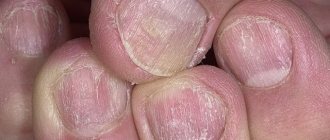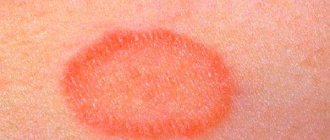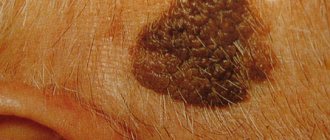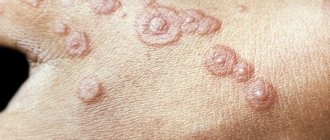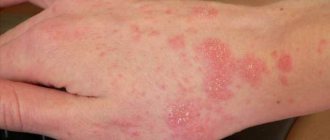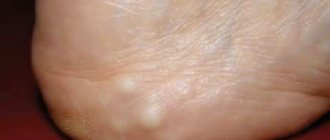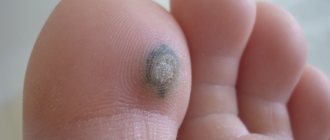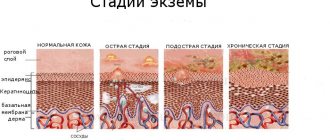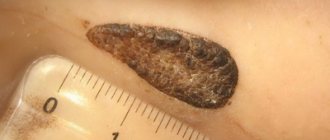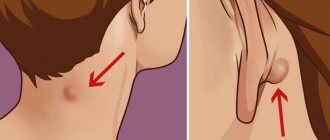Symptoms of the disease, namely red spots on the skin, plaques, dryness, severe itching, cause a lot of discomfort in the arms, legs, groin area, hairline, nails, and in severe cases even the eyes.
Despite the great efforts of specialists and scientists, the cause of the disease cannot be identified. There are many different theories. Immune supporters argue that the disease is affected by poor immunity. Research confirms that parents with psoriasis often have children with a similar disease.
Patients notice that after experiencing stress, symptoms intensify. Many believe that metabolism, the functioning of the endocrine system and other factors influence psoriasis. In this article, we will take a closer look at the causes of psoriasis, what treatment methods exist, and its symptoms.
Causes of psoriasis
Scientists have not yet been able to uncover the main cause of psoriasis. From the experiments, studies, and surveys conducted, it was found out under what conditions and factors the disease occurs more often. However, each factor is not found in all cases, so theories have been formed that have not yet been confirmed.
A dermatologist can tell you what psoriasis is, what its symptoms are, but today it is not possible to give an exact answer to the question of what causes psoriasis and what drug will definitely help cure it.
Many patients notice that with stress and non-compliance with dietary rules, the symptoms of psoriasis can worsen; the disease is also more common in people with poor immunity and metabolism, and disorders of the endocrine system. But whether these factors actually influence the disease is unknown.
Let's look at the following main theories about the cause of psoriatic rashes in children and adults:
- Immune
- Genetic.
- Viral.
- Endocrine.
- Neurogenic.
- Metabolic disorder.
The symptoms of psoriasis and a description of its types can be seen in the photo; the causes of the disease are listed below.
Immune theory of psoriasis
This theory is considered one of the most substantiated and most popular among specialists. Thus, its adherents believe that the disease appears due to a phenomenon such as autoimmune aggression. Let's look at the principle by which this happens.
Since the immune system does not work correctly, it identifies healthy cells as pathological and has a destructive effect on them. Healthy cells become diseased, affected areas become inflamed, areas of peeling appear, and cells die. Peeling is provoked by the following factors:
- Friction of affected areas.
- Skin damage of a climatic nature: burns, hypothermia.
- Mechanical damage in the form of wounds, cuts.
Cells affected by psoriasis were examined under a microscope and antigenic formations actually occur, while they are absent in healthy areas. But this does not prove the immune theory of the appearance of psoriasis, since the cause of their appearance is unknown. Many scientists believe that immune factor alone is not enough to cause psoriatic symptoms. The immune factor often becomes the “start” for the disease.
Genetic theory
This theory can be proven by conducting research, surveys and compiling statistics. Experts suggest that a person has a greater risk of getting sick if his parents have a similar disease. The reason for this is a hereditary predisposition. It is possible that not only parents, but also more distant relatives can “pass on” genes with this disease.
According to survey results, more than half of patients have one or more people who suffer from a similar illness. Experts compiled statistics and identified risks:
- The risk of a child getting sick if only the father or mother has psoriasis is 1 in 4.
- If both the father and mother have psoriasis, the risk is much higher – 3 to 4.
However, from the results we can also notice that patients may not have sick relatives. Therefore, the hereditary factor is not considered the main one. The theory that not one, but two or more factors lead to the disease is confirmed by this study. Therefore, not only genetics is to blame for the occurrence of the disease.
Viral theory
For a long time, many experts believed that viral infections predispose to the appearance of skin diseases. The hypothesis is connected with the fact that during a disease that appears as a result of exposure to viral formations, the symptoms of psoriasis intensify. It was noticed that in some patients the first symptoms appeared during the period of illness.
Opponents of this theory have put forward a refutation: this theory is directly related to the immune system, since when the body is damaged by viruses, the patient’s immune defense is greatly weakened, and it is this that becomes the cause of the disease. This theory is also refuted by the non-infectious nature of psoriasis. Since it is impossible to contract a disease from another patient, the disease is not viral in nature.
Endocrine theory
Proponents of the endocrine theory have put forward the following assumption: failure of hormone production directly affects the appearance of psoriasis. According to them, the development of pathological cells is caused by hormonal imbalances.
This happens precisely because of disruptions to the endocrine system. This includes the secretion of glands, excessive use of drugs containing hormones, pregnancy, and ovulation in women. Since hormonal levels change during pregnancy and ovulation, this can contribute to the appearance of symptoms. This theory is explained by the fact that excessively active proliferation of cells in the body indicates disturbances in regulation, and it is disrupted precisely for endocrine reasons.
According to doctors' reviews of observations of their patients, it was revealed that with dysfunction of the endocrine system, an increase in symptoms is observed. But there is no evidence or refutation of this theory, since it was not possible to establish which hormones are produced intensifying the symptoms.
Neurogenic theory
Many patients experience confirmation of this theory for themselves: they notice that after experiencing stress and depression, not only do symptoms, such as itching and rashes, intensify, but many people even show signs of the disease for the first time. This is due to disorders in the nervous system, and it is associated with the patient’s psychosomatics.
This theory appeared quite recently; no research has been carried out on it, like other theories.
According to this theory, the disease appears and progresses in the following cases:
- Stress and depression.
- Experiences.
- Insomnia.
- Severe fatigue, overwork.
In stressful situations, a person's blood vessels constrict, resulting in poor blood flow to the skin. It is because of this, according to experts, that manifestations of psoriasis may appear. Thus, in the last century, doctors noticed that signs of the disease, according to their patients, appeared after experiences. Therefore, this theory was built solely on the words of patients.
Metabolic disorders
Dermatologists from all over the world have one assumption related to the fact that psoriasis appears due to poor metabolism in the patient’s body. According to numerous studies conducted based on laboratory tests. Many patients showed similarities in their results.
Patients with psoriasis experience a slow metabolism and various metabolic disorders. This is expressed by a noticeable decrease in temperature, high levels of cholesterol and various toxic formations that were not processed by the body in time and were not eliminated from it.
Lack of retinol in the blood, adermin, cyanocobalamin (vitamins A, B6, B12, respectively) - this is what characterizes the course of the disease. At the same time, the level of ascorbic acid is higher than normal.
Find out more
Who is at risk
Medical specialists cannot say why psoriasis appears, but it is reliably known that the pathology is hereditary. Genetic studies have revealed that there are several genes in the human DNA structure that can cause the disease.
Genetic factors also influence the severity of the disease. In cases where the disease makes itself felt in childhood, the pathology occurs in a more severe form. In mature and elderly patients, the manifestations of the disease are minimal.
According to the results of the examination, all patients with psoriasis have blood relatives with the same pathology. In families where at least one parent has this unpleasant diagnosis, the probability of having a child with psoriasis is 40%.
Studies on the risk of the disease have also been conducted among identical twins. As a result, it turned out that both twins are susceptible to pathology only in 70% of cases. This suggests that the development of psoriasis depends not only on genetics, otherwise 100% of twins would suffer from the disease. This suggests the conclusion that the causes of the disease lie not only in genes, but are of a multiple nature.
To date, scientists have not been able to fully understand what causes psoriasis and which genes can cause its development in humans. But after conducting research, it turned out that there is a direct connection in the development of the disease with a certain part of the chromosome. The manifestation of the disease involves DNA, which determines the level of the inflammatory reaction of the skin.
In addition, scientists believe that for the development of psoriasis, a person must inherit a whole combination of genes that, under the influence of external factors, provoke the disease. Hereditary predisposition does not manifest itself in everyone.
Factors that provoke the occurrence of psoriasis
According to the studies, it was revealed which factors most often unite patients with psoriasis, under what conditions the incidence becomes high and what causes an increase in symptoms. Below are the factors in which the incidence is observed more often.
Infectious diseases
Various diseases associated with the development of infection in the body can provoke symptoms and relapses of psoriasis. They also lead to complications and cause severe disease. Therefore, if a patient falls ill with various infectious diseases during psoriasis, it is necessary to promptly eliminate the source and symptoms, cure the disease, and consult a doctor to prescribe medication.
Pregnancy
It has been observed that during pregnancy women get sick more often. This is due to hormonal changes, so the endocrine theory of psoriasis is applicable here. Therefore, pregnant women need to get tested more often, undergo examinations and consultations with their doctor, monitor their general health, try not to worry, follow proper nutrition or the diet prescribed by the doctor, do not drink alcohol or smoke, preferably fall asleep and wake up at the same time, just like eating.
Skin injuries and damage
With various lesions of the skin, such as wounds, burns, cuts, scratches, there is a risk of developing psoriasis. This item includes chemical damage to the skin under the influence of various substances related to household and any other chemicals. Many patients work in factories and have constant contact with irritants - in this case, it is necessary to use protective gloves or other methods.
Bad habits
The cause of the disease can be bad habits, including drinking alcohol and smoking.
Use of certain medications
Overdose of various medications, such as antibiotics, immunostimulants, even vitamins, can increase the symptoms of psoriasis. This is due to the immune theory of the onset of the disease.
Poor nutrition
It has been noticed that in people who do not follow the rules of proper nutrition, symptoms manifest themselves much more clearly than in those who eat properly and monitor their diet. If you have psoriasis, you should not eat fried, spicy, salty, sweet, or smoked foods.
Symptoms and signs of psoriasis
With psoriasis, a person develops a rash on the body. At the initial stage it is small, 1-2 mm in diameter.
As the disease progresses, it increases and can reach 2-3 centimeters in diameter.
Color pink, red. Psoriatic spots are covered with whitish scales.
In the table we look at the types of psoriasis and symptoms:
| Type of disease | Clinical manifestations and course features |
| Plaque (other names: vulgar, simple, ordinary) | This form of pathology is the most common. It is diagnosed in 80-90% of all cases of morbidity. Red spots appear on the human body, and body temperature locally increases. The spots are covered with white-silver scales. They peel off easily. The skin underneath is bleeding. Plaques tend to enlarge, resulting in large lesions. In medicine, this phenomenon is called “paraffin lakes.” |
| Inverse psoriasis or flexor limb disease | Smooth spots appear, as a rule, there is no peeling or it is insignificant. The spots form exclusively in the skin folds, other areas are minimally affected. With injury or friction, this form progresses quickly. Inverse psoriasis is complicated by a fungal infection in most cases. |
| teardrop-shaped | Many small plaques appear on the human body. They rise above the surface of the skin. The color is different - pink, red, bluish, purple. The shape of the rash looks like small droplets. Pathological elements are often localized on the hips, abdomen, back, and neck. The drop-shaped variety often occurs after infectious processes provoked by streptococci. |
| Pustular (exudative) form | A severe type of disease. Raised bubbles appear on the surface of the skin, filled with liquid contents. The skin around the pustules is red, inflamed, swollen, and the local temperature is increased. With secondary infection of pustules, purulent contents form in the blisters. Localization - distal ends of the upper and lower extremities. There is a generalized form of pustular psoriasis - blisters appear over the entire surface of the body, merge into large conglomerates, and pain is present. |
| Psoriasis of the nail plates or psoriatic onychodystrophy | The appearance of nails, fingers, and toes changes. These pathological changes include various combinations of colors - yellow, red, gray, brown. Dots, spots, lines, notches, stripes, and bumps appear on the nail plates. Nails thicken and split. In advanced cases, the nails move away from the nail bed or the patient experiences excessive brittleness of the nails. |
| Psoriatic type of arthritis (arthropathy) | Characterized by inflammatory damage to joints and connective tissues. The disease can affect any joint in the body, but most often the small joints of the distal phalanges of the hands and feet are affected. In typical pictures, the fingers swell and hurt (psoriatic dactylitis). Sometimes the hip and knee joints and vertebral joints are affected. This leads to loss of ability to work and disability, and the inability to care for oneself independently. Psoriatic arthritis is a complication of psoriasis rather than a separate form of it. Develops in 10-15% of patients. |
| Psoriatic erythroderma or erythrodermic psoriasis | The heaviest variety. It is characterized by a generalized inflammatory process, severe peeling, and detachment of the skin over the entire surface of the body or most of it. Some patients experience itching, swelling of the skin, subcutaneous tissue, and pain. Often erythroderma is an exacerbation of the vulgar form against the background of its unstable course. This type of disease can lead to death, because skin detachment and severe inflammation disrupt the thermoregulation of the skin, which is complicated by sepsis or generalized pyoderma. |
Important information: How to treat nervous psoriasis?
The symptoms of psoriasis vary not only depending on the type of disease, but also depend on the stage and the specific season of the year. Most patients experience a “winter” type of disease, in which periods of exacerbation occur in winter or late autumn.
Is psoriasis contagious?
This question is often asked by patients themselves, as well as by the people around them. Scientists assure that psoriasis is not a contagious disease and is completely safe for others. You cannot become infected from a sick person or animal.
The disease is not transmitted to other people. Being in the same room with a patient, close physical contact, sharing utensils, household items, etc. is completely safe.
Treatment of psoriasis
It is not advisable to select medications for the treatment of psoriasis on your own, as it can worsen the course of the disease. Your treating dermatologist should diagnose the disease and prescribe the necessary treatment. It is impossible to completely cure psoriasis, as it is chronic. The right medicine will provide quick relief from symptoms and long-term remission.
In addition to medication, you must follow a special diet for psoriasis. This will reduce the production of oil by the sebaceous glands. The diet excludes the consumption of fatty, smoked, spicy, salty foods, alcohol and tobacco. Drinking coffee and strong tea is prohibited. It is also recommended to take medications that will improve the functioning of the gastrointestinal tract. Thanks to the diet, metabolism is restored.
Doctors also prescribe vitamin complexes that include vitamins D, group B, A, and E. It is recommended to eat fish, olive oil, and honey.
Genes and immunity
Think of the human genome as instructions that control how cells grow and function. Anomalies in the genome are similar to typos. And genetic instructions with typos lead to erroneous cell functioning.
In psoriasis , the genetic signals that control the immune system are disrupted. Instead of protecting the body from foreign invaders, the immune system provokes inflammation, causing skin cells to divide at a crazy rate.
To date, about 25 genes , mutations in which can cause psoriasis. Researchers believe that more than 1 mutation is required for the disease to start.
About 10 out of 100 people have genes that predispose them to developing psoriasis. But only 2 or 3 genes actually cause severe disease.
Doctors believe that psoriasis develops when several predisposing factors :
- impaired immunity;
- genetic predisposition (mutation in one or more genes);
- environmental impact.

